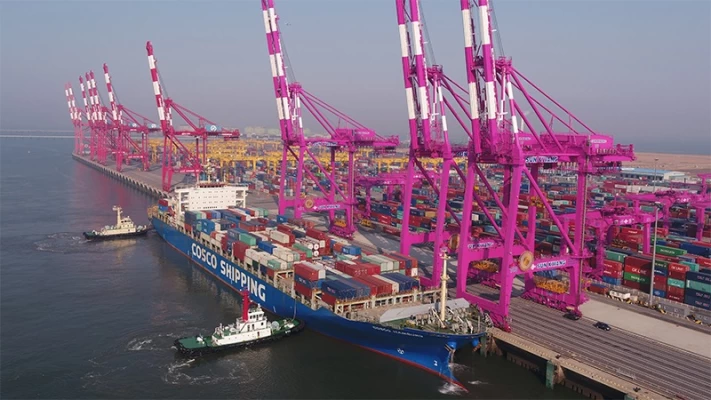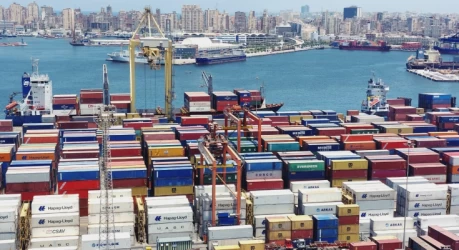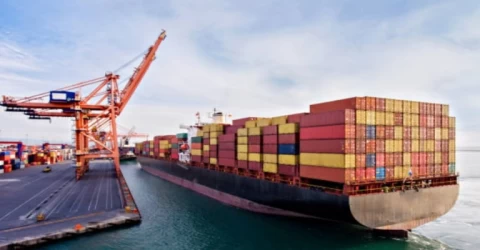Sea Freight in Incheon Port
Incheon Port, located on the west coast of South Korea, is a vital hub for sea freight and international trade. As one of the country’s major ports, it plays a crucial role in the economic development of the region and serves as a gateway for goods entering and leaving South Korea. This article explores the various aspects of sea freight operations at Incheon Port, including its facilities, services, and strategic importance.
Historical Background
Incheon Port has a rich history dating back to the late 19th century. It was officially opened in 1883, making it one of the oldest ports in South Korea. Over the years, the port has undergone significant expansions and modernization to accommodate the growing demands of international trade. Today, it stands as a testament to South Korea’s maritime prowess and its commitment to global commerce.
Port Facilities and Infrastructure
Incheon Port boasts state-of-the-art facilities and infrastructure designed to handle a wide range of cargo types. The port is equipped with modern container terminals, bulk cargo terminals, and specialized facilities for handling automobiles, chemicals, and other goods. Key features include:
- Container Terminals: Incheon Port has several container terminals with advanced handling equipment and storage facilities. These terminals are capable of accommodating large container vessels and ensuring efficient loading and unloading operations.
- Bulk Cargo Terminals: The port’s bulk cargo terminals are designed to handle commodities such as coal, grain, and minerals. These terminals are equipped with conveyor systems, storage silos, and other specialized equipment to facilitate the smooth transfer of bulk goods.
- Automobile Terminals: Incheon Port is a major hub for automobile exports and imports. The port has dedicated terminals for handling vehicles, with facilities for storage, inspection, and distribution.
- Chemical Terminals: The port’s chemical terminals are equipped to handle hazardous materials safely. These terminals have specialized storage tanks, pipelines, and safety measures to ensure the secure handling of chemicals.
Strategic Importance
Incheon Port’s strategic location makes it a key player in regional and global trade. Situated near the capital city of Seoul, the port provides easy access to South Korea’s largest consumer market. Additionally, its proximity to major shipping routes in the Yellow Sea and the East China Sea enhances its connectivity with other Asian ports and global trade networks.
The port’s strategic importance is further underscored by its role in the Incheon Free Economic Zone (IFEZ). The IFEZ is a special economic zone designed to attract foreign investment and promote economic growth. Incheon Port serves as a critical logistics hub within the IFEZ, facilitating the movement of goods and supporting the development of industries in the region.
Services and Operations
Incheon Port offers a wide range of services to support sea freight operations. These services include:
- Cargo Handling: The port provides efficient cargo handling services, including loading, unloading, and storage. Advanced equipment and skilled personnel ensure the smooth and timely transfer of goods.
- Customs Clearance: Incheon Port has streamlined customs clearance procedures to facilitate the quick processing of imports and exports. The port’s customs office works closely with shipping companies and freight forwarders to ensure compliance with regulations and expedite the movement of goods.
- Logistics and Distribution: The port’s logistics and distribution services include warehousing, inventory management, and transportation. These services are designed to optimize supply chain operations and enhance the efficiency of cargo movement.
- Value-Added Services: Incheon Port offers a range of value-added services, such as packaging, labeling, and quality inspection. These services help businesses meet specific requirements and add value to their products.
Environmental Initiatives
Incheon Port is committed to sustainable and environmentally friendly operations. The port has implemented various initiatives to reduce its environmental impact and promote green practices. These initiatives include:
- Emission Reduction: The port has adopted measures to reduce air pollution, such as using cleaner fuels and implementing emission control technologies on vessels and equipment.
- Waste Management: Incheon Port has established comprehensive waste management systems to minimize waste generation and promote recycling. The port also conducts regular environmental monitoring to ensure compliance with regulations.
- Energy Efficiency: The port has invested in energy-efficient technologies and infrastructure to reduce energy consumption. This includes the use of LED lighting, energy-efficient cranes, and renewable energy sources.
Future Developments
Incheon Port continues to evolve and expand to meet the growing demands of global trade. Future developments at the port include:
- Expansion of Container Terminals: The port plans to expand its container terminals to increase capacity and accommodate larger vessels. This expansion will enhance the port’s competitiveness and support the growth of containerized trade.
- Development of Smart Port Technologies: Incheon Port is investing in smart port technologies to improve operational efficiency and enhance the customer experience. This includes the use of automation, data analytics, and digital platforms to streamline processes and optimize resource utilization.
- Enhancement of Connectivity: The port aims to enhance its connectivity with other ports and logistics hubs through improved transportation infrastructure and strategic partnerships. This will strengthen Incheon Port’s position as a key logistics gateway in the region.
Conclusion
Incheon Port is a vital hub for sea freight and international trade, offering world-class facilities, services, and strategic advantages. Its commitment to sustainability, innovation, and efficiency ensures that it remains a key player in the global maritime industry. As the port continues to evolve and expand, it will play an increasingly important role in facilitating global commerce and supporting economic growth in South Korea and beyond.
If you have any specific questions or need more details about Incheon Port, feel free to ask!











